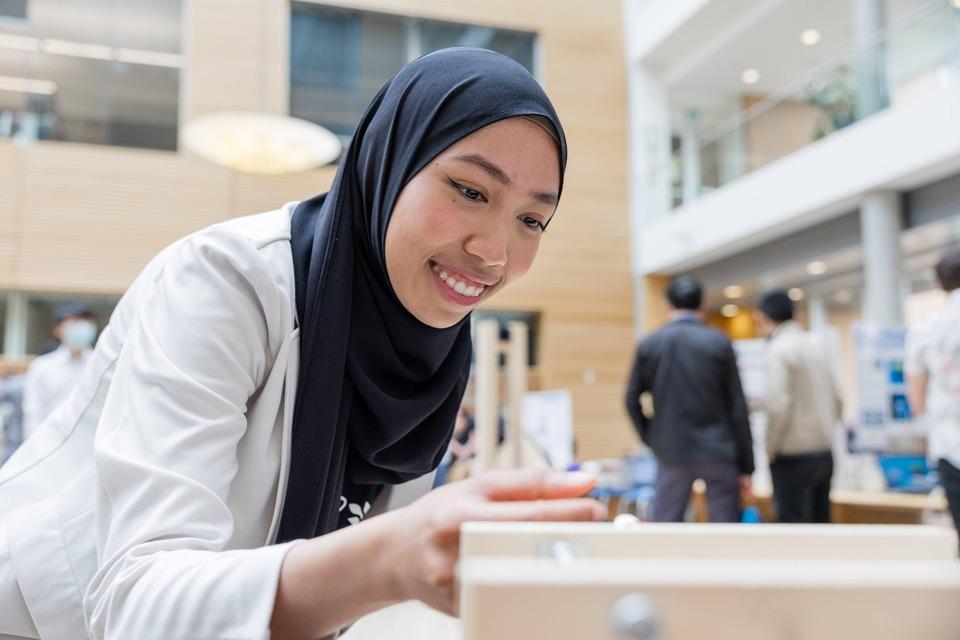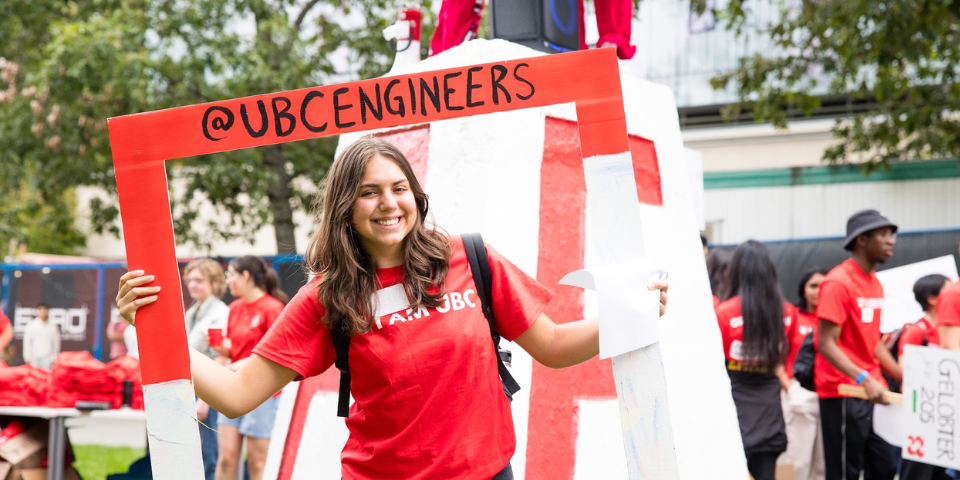
The manufacturing sector is one of the biggest drivers of the Canadian economy, and it is changing rapidly, becoming more complex and is employing evolving high-tech solutions. To compete on a global scale, Canadian industry needs engineers who are trained and prepared to meet these demands of this fast-paced, dynamic and growing sector.
Students in the Manufacturing Engineering program will take courses in mechanical and materials engineering, electrical and computer engineering, and specifically designed manufacturing engineering courses, including manufacturing processes, production systems management, and industrial automation. They will receive training across a range of major manufacturing processes and platforms, and instruction in production management and modern manufacturing practices, including newly emerging practices in digital modeling, virtual machining, additive manufacturing and composites.
With an emphasis on project-based team learning, students will explore how robotics, artificial intelligence, and autonomous systems are transforming the manufacturing industry.
The program combines both traditional and hands-on learning to give you practical and analytical skills needed to become a successful engineer. Through the program students will learn to:
- Design, operate and optimize advanced manufacturing environments
- Develop digital models for manufacturing processes
- Design and control manufacturing machinery
- Manage the manufacturing environment
Okanagan Campus
Learn more about Manufacturing Engineering (Okanagan)
Vancouver Campus
Learn more about Manufacturing Engineering (Vancouver)
Why study this program
Manufacturing Engineering includes elements from a variety of disciplines including mechanical, electrical, and material and links them together within the context of manufacturing. Manufacturing engineers oversee the production process from beginning to end. They design factories, production schedules and quality systems to ensure that the products they make are economical, sustainable and safe by designing and optimizing manufacturing environments, developing digital manufacturing process models and working with manufacturing machinery. Manufacturing Engineering graduates are able to work in a variety of different fields including: aerospace, automotive and rail, biomedical, chemical, clean energy, computer and electronics, mineral products, plastics, rubber and transportation.
Courses & specializations
Students will first complete a foundational first year of engineering and then take specialized courses beginning in second year, once they are placed into their engineering discipline. The Manufacturing program on the Vancouver campus will run in parallel, and in collaboration with an Okanagan campus program.
Here is a sample of the courses Manufacturing Engineering students can take in each year of study at the Vancouver Campus:
| Year 2 | |
|---|---|
| MANU 201 | Technical Communication for Manufacturing Engineers |
| MANU 230 | Manufacturing Laboratory |
| MANU 270 | Production Systems Management I |
| CPEN 223 | Software Design for Engineering |
| MECH 261 | Thermodynamics |
| Year 3 | |
|---|---|
| MANU 380 | Manufacturing Processes I |
| MECH 386 | Industrial Automation |
| MTRL 455 | Engineering Economics |
| CPEN 333 | System Software Engineering |
| Year 4 | |
|---|---|
| MANU 430 | Manufacturing Design Capstone Project |
| MANU 465 | AI and Machine Learning Applications in Manufacturing |
| MANU 485 | Metal Cutting and Machine Tool Vibration |
| MECH 467 | Computer Control of Mechatronics Systems |
For a more in-depth look at the curriculum, please consult the Academic Calendar and course descriptions.
Enhance your education (further education)
Graduates of the Manufacturing Engineering program looking to continue their education can pursue professional programs and graduate studies after completing their undergraduate studies. The analytical and problem-solving skills students gain from an undergraduate engineering degree translate well into the qualities needed for Medical and Law School.
Students graduating with an undergraduate degree in Manufacturing Engineering can develop their professional and research abilities by continuing on to a graduate program like the Master of Applied Science (MASc) in Mechanical Engineering where they can study and research a wide range of topics, including Biomedical & Biomechanical Engineering, Energy & Environment, Manufacturing Automation & Robotics, and Mechatronics & Instrumentation. The graduates are also strong candidates for UBC's Master of Engineering Leadership in Advanced Materials Manufacturing, which offers a unique combination of business and engineering courses for students looking to advance their studies and gain the necessary skills to create multi-material manufacturing solutions for the automotive, aerospace, and manufacturing sectors.
Careers
With a mean base salary of $118,068 (source) and an expected employment growth rate of 1.0% over the next 5 years (source), graduates of Manufacturing Engineering are well equipped to pursue careers in consulting firms, manufacturing and processing companies, industrial and government research facilities, and financial and health care institutions (source). Common career titles (source) for Manufacturing Engineering graduates include: Computer integrated manufacturing (CIM) engineer, Consulting industrial engineer, Cost engineer, Efficiency engineer, Fire prevention engineer, Industrial efficiency engineer, Industrial engineer, Industrial safety engineer, Methods engineer, Plant engineer, Production engineer, Quality assurance (QA) engineer, Quality control engineer, Safety engineer.
Employers
Both current students and graduates are able to work for a wide range of employers.
Alumni
Design Teams & Clubs
Design Teams
There are over 30 Engineering Design Teams at UBC. Joining an engineering design team is an excellent opportunity for students from all disciplines to collaborate on a wide variety of design projects and gain relevant teamwork, leadership, and technical skills transferrable to future careers.
See full list of UBC’s Engineering Design Teams.
Clubs
There are many ways engineering students can get involved, including joining clubs relevant to their discipline. Clubs relevant to Manufacturing Engineering include:
Minors & dual degrees
Engineering students are able to complement their studies with 5 Minors available or a Dual Degree with Arts. Students interested in a minor can apply to their chosen option in their third year of study. A minor or dual degree will likely extend your degree past 4 years.
Co-op
Participation in the Applied Science Co-op Education program gives students the opportunity to gain up to 20 months of paid relevant work experience during their degree. This experience provides an excellent opportunity for students to explore different industries, apply their studies to the working world, and create connections with future employers. The Co-op program will extend your four year degree to five years. Participation is optional and students apply to join Co-op in their second year of study.
International experiences
Students can embark on an unforgettable experience abroad while earning credits towards their engineering studies. Opportunities include the Coordinated International Experience (CIE) exchange program, the Go Global exchange program, and the Global Engineering Leadership courses. The CIE program is customized for Applied Science students and features 18 international partner institutions across 3 regions. All of the international experiences allow students to build an international network of peers, professors, and potential employers.













